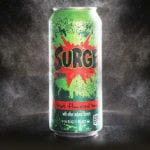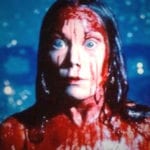 Weird Stuff
Weird Stuff  Weird Stuff
Weird Stuff  Miscellaneous
Miscellaneous 10 LEGO Facts That Will Toy with Your Mind
 Misconceptions
Misconceptions 10 Widespread Historical Myths and the Texts That Started Them
 Crime
Crime 10 Incredible Big-Time Art Fraudsters
 Movies and TV
Movies and TV 10 Most Influential Fictional Objects in Cinema History
 Our World
Our World Top 10 Real Almost‑Cities That Never Materialized
 Technology
Technology 10 Unsettling Ways Big Brother Is (Likely) Spying on You
 Music
Music 10 Chance Encounters That Formed Legendary Bands
 Space
Space 10 Asteroids That Sneaked Closer Than Our Satellites
 Sport
Sport The 10 Least Credible Superstars in Professional Sports
 Weird Stuff
Weird Stuff 10 of History’s Greatest Pranks & Hoaxes
 Miscellaneous
Miscellaneous 10 LEGO Facts That Will Toy with Your Mind
 Misconceptions
Misconceptions 10 Widespread Historical Myths and the Texts That Started Them
Who's Behind Listverse?

Jamie Frater
Head Editor
Jamie founded Listverse due to an insatiable desire to share fascinating, obscure, and bizarre facts. He has been a guest speaker on numerous national radio and television stations and is a five time published author.
More About Us Crime
Crime 10 Incredible Big-Time Art Fraudsters
 Movies and TV
Movies and TV 10 Most Influential Fictional Objects in Cinema History
 Our World
Our World Top 10 Real Almost‑Cities That Never Materialized
 Technology
Technology 10 Unsettling Ways Big Brother Is (Likely) Spying on You
 Music
Music 10 Chance Encounters That Formed Legendary Bands
 Space
Space 10 Asteroids That Sneaked Closer Than Our Satellites
 Sport
Sport The 10 Least Credible Superstars in Professional Sports
20 Greatest Sci-Fi Movies of the 90s
NOTE: This is the second submission of this list. The first submission proved quite unpopular because I ranked movies according to Rotten Tomatoes freshness and my decision to include The Sixth Sense, Batman: Mask of the Phantasm and Princess Mononoke. The criticisms are well taken; so, this is the list as I originally wrote it MINUS the three afore-mentioned movies. To make it an even 20, I threw Contact back in from an earlier version, even though I dislike the movie.
While the technical quality of sci-fi leapt forward during the 1990s, the decade features a depressing dearth of really good sci-fi in this post-Star Wars era. Many of the movies that Hollywood produced in the 1990s made from great sci-fi books or other established source materials should have been better in execution—much better: The Postman, Starship Troopers, Contact, Sphere, The Phantom Menace, Lost in Space, Star Trek Generations, Judge Dredd, Aliens3 and Godzilla. (Quick: What size was Godzilla when she was stomping round New York City? No one knew, especially that schlock-fest’s producers.)
What follows is a selection of the best from the 1990s. On the plus side, at least half of the movies that made the cut were not big-budget blockbusters. And like the 1980s, some of the best sci-fi movies were Japanese anime. Notable and deliberate omissions: Apollo 13 (it’s sci-FACT, not sci-fi); the fun and quirky Being John Malkovich (fantasy, not sci-fi); Total Recall (more dumb than good); and Independence Day. Despite the gee-whiz special effects, stirring speeches and fun characters, Independence Day was just stupid—as in unintelligent. The three most egregious “sins” are: the techno-advanced aliens needing our puny satellite system to “coordinate” their attack, the massive mother ship exploding in close proximity to Earth with no damage to the planet, and Jeff Goldblum successfully hacking into the mother ship with his puny laptop. Those three things ruin the experience.
It took a while for this Charlie Sheen sci-fi thriller to grow on me. Co-starring the late Ron Silver, The Arrival is a fast-paced sci-fi thriller featuring Sheen as radio astronomer Zane Ziminski who detects what appear to be alien signals. Mysteriously fired for showing his findings, Ziminski gets thrown into a wild conspiracy that leads to a disturbing discovery. It’s actually better than it sounds, and as far as first contact-style movies go, The Arrival is superior to the haughty and overblown Contact and often-laughable Independence Day.
A strange mixture of cyberpunk with the then-hip tech of virtual reality, the British and Canadian eXistenZ skillfully explores the blurring of reality and fantasy. Players literally jack into a virtual reality game by plugging a connection into their spine. Talk about literally putting you in the game!
I didn’t place Contact higher on the list for one very important reason: the characters are too one-dimensional. For example, the motivation for Jake Busey’s character to destroy the first “Machine” is laughably stupid. In fact, the whole film—and Carl Sagan novel—seems like just one long, ridiculous and ignorant rant against religion. Still, the film is intriguing and doesn’t shy away from the real controversy: Did Jodie Foster’s character actually travel through space in the blink of an eye? The final 15 or so minutes make sitting through the rest of the film worthwhile.
Yes, this is a guilty pleasure, but unlike most other big-budget popcorn flicks, this movie never takes itself seriously. The first time I saw this movie I had so much fun it didn’t matter how silly or incomprehensible it was. The second time I tried to watch it with a critical eye, but wound up not caring again while I was having so much fun. If you take this movie seriously (like Independence Day), then you’ll ridicule it as a piece of overblown garbage. If you take it for a light-hearted, shoot-‘em-up, let’s-have-fun-in-space popcorn flick, then it’s a blast. Bruce Willis stars as a world-weary cab driver (are all heroes now “world-weary”?) and former elite soldier named Corbin Dallas—great name, by the way—who ends up the guardian/love interest of the “supreme being,” the universe’s only hope from a gigantic sphere o’ pure evil. It seems like the cast just had a blast making this movie, including Ian Holm as the bumbling priest, the late and great Byron James as Dallas’ former CO, Gary Oldman as the wicked, evil, devilish industrialist bad guy, and Chris Tucker as Ruby Rhod, a spacey space-cadet of a 23rd century pop idol/diva. And frankly, Chris Tucker is what makes this movie for me (some people hate his character, though).
The Truman Show is an intriguing movie where Truman (Jim Carrey) lives out his entire life as an unwitting participant in a wildly popular reality TV show about his life. But one day, a stage light falls from the “sky” and Truman begins to realize that his reality is not really reality. (Say that 10 times fast.)
This eighth Star Trek voyage is the best one since 1982’s Wrath of Kahn, and the only ST film featuring the Next Generation cast that really appeals beyond Trek circles. Heavy with overtones of Moby Dick, First Contact features our heroes battling the cybernetic Borg for the future of Earth. A little corny in places (Dr. Cochran says to the Enterprise crew members from the future: “You’re like astronauts… on some sort of star trek!”) but overall, the script is good and the action exciting.
Men in Black was a surprise 1990s monster hit, based on the comic of the same name. It’s pure popcorn, but ragingly good popcorn. Agents K (Tommy Lee Jones) and J (Will Smith) of the Men in Black maintain earth as a “Casablanca without the Nazis” until a bug with a bad attitude (Vincent D’Onofrio in a terrific performance) arrives and starts some stuff. More “fi” than “sci,” of course, but it’s still one of the best fun sci-fi flicks of all time. Best line: When J puts on his black suit and shades for the first time, he tells K: “The difference between you and me is I make this look good.”
Michael Crichton’s tale of dinosaurs come alive through cloning introduced the world at large (outside of certain scientific circles, of course) to one of the greatest killing machines ever: the velociraptor. With a gorgeous John Williams soundtrack, believable f/x and a typically—wonderfully—nerdy scientist performance by Jeff Goldblum (Ian Malcolm) Jurassic Park was and still is a terrific ride. By necessity, the movie is thinner than the novel—and trying to figure out the landscape of the T-Rex attack scene will make your head spin. (Where did that cliff come from that the heroes climb down?) Best line: Hammond tells Malcolm that “All major theme parks have delays. When they opened Disneyland in 1956, nothing worked.” Malcolm replies, “Yeah, but John, if the Pirates of the Caribbean breaks down, the pirates don’t eat the tourists.”
One of the more imaginable sci-fi films in a long time, this fun fairy tale features Johnny Depp as a scientific experiment accidentally left unfinished when his creator (the late great Vincent Price) dies. An Avon lady (delightfully played by Dianne Wiest) discovers the abandoned Edward, who still has several blades and scissors for hands and fingers. Sort of an update of the Frankenstein story.
Quite a different movie than the others on this list, this French film depicts a dystopian society where a scientist kidnaps children to steal their dreams. If you’ve seen the director’s weird post-apocalyptic “Delicatessen,” you kind of know what you’re in for. Somewhat grotesque, it’s definitely not a run-of-the mill sci-fi psychological thriller.
Bruce Willis stars as a convict sent back in time to help unravel the mystery of a super virus that ravaged earth in the mid-1990s. His search centered upon a group of radical animal rights fanatics led by Brad Pitt—but is he on the right track? This well-received post-apocalyptic flick is based on 1962’s La Jetee. (See my list on great sci-fi films of the 1960s.) What I like about this film — other than the lovely Madeleine Stowe — is the fact that noting is quite as it seems.
This hilarious send-up of Star Trek is actually a fantastic adventures-in-space movie in its own right. It’s also a better Star Trek movie than most of the Star Trek movies. Tim Allen plays the William-Shatner-like star of a defunct TV series called Galaxy Quest (heh). He and his former cast-mates spend time slumming at sci-fi conventions. That is, until they’re kidnapped by aliens who think the show was the real deal. Totally rips/plays up great sci-fi and Trek stereotypes, such as Sigorney Weaver’s character, who starred on Galaxy Quest as pure eye candy.
Gattaca is a rare modern sci-fi movie that relies on thinking and serious themes instead of f/x and explosions. Ethan Hawke stars as Vincent, who is born without the aid of genetic manipulation, and therefore becomes an instant outcast in a future society that values genetic manipulation before birth. A “god-child” or “faith-birth” by purely natural means like Vincent is considered greatly inferior to “valids.” “Imperfect” Vincent ends up trading places with “perfect” Jerome, the former getting to become an astronaut and the latter actually getting to dream at night. Well worth the time to watch.
If you’ve followed my lists of sci-fi films of each decade, you’ll recognize that I favor films that depict a dystopian future. Jin-Roh is my favorite such flick, and one of my all-time favorites of any genre. Loosely based on a manga series, Jin-Roh is set in an alternate history of post-war Japan, where an elite force, called the Kerberos Panzer Cops, is an above-the-law paramilitary unit that combats domestic terrorism. The protagonist, Kazuki Fuse, freezes when he confronts a “red riding hood,” a bomb courier for the terrorists. The girl detonates the bomb, causing widespread damage; a friend saves the frozen Kazuki from certain death. Kazuki, ordered back to training, starts a tortured relationship with dead girl’s twin sister. Jin-Roh is beautifully made film—entirely hand-drawn!—and is heavy with symbolism. Panzer Cops are equipped like WWII German soldiers, right down to their helmets and MP-42 heavy machine guns. The wider story skillfully draws from the tale of Little Red Riding Hood — not the kid-friendly Grimm Brothers version, but the much darker original tale. All-in-all, Jin-Roh is just superb.
This well-received movie—a Sundance winner and somewhat obscure for popular audiences—is more psychological thriller than pure sc-fi. And I’d be on crack if I claimed I understood all of the theories and mathematics presented in this film. Nevertheless, Pi (?) deftly explores how the life of a paranoid and recluse mathematical theorist goes out of control when he stumbles upon a formula for predicting the stock market. Contains a gruesome climax.
While the second and third installments were such convoluted disappointments, the first Matrix movie was a mind-blowing trip. Programmer/hacker Neo goes searching for The Matrix—but in the fine tradition of “beware of what you wish for; you may get it,” Neo discovers that his reality is actually a construct of machines who use docile humans as a power source. Neo comes to learn that he is “the One” who will end the machines’ dominance once and for all. Highly influential with its f/x.
A man wakes up in a hotel with no memory of who he is or what he’s doing there. He’s soon on the run from beings called “the Strangers” and comes to realize he has psychokinetic powers. The Strangers, who can alter reality, time and memory, are actually parasitic aliens who are experimenting the nature versus nurture aspects of humanity. (Is a person’s natural state more important to what makes a human who and what he is, or is nurturing—life experiences—more important?) Some have dubbed Dark City “the thinking man’s Matrix.” Roger Ebert declared Dark City the best movie of 1998.
This Spanish sci-fi thriller was well-received and celebrated when it was released. A man, Cesar, is horribly disfigured in an accident and begins to have many disorienting experiences. After he murders a woman he thinks is his ex-lover, Cesar learns that after the accident he was cryogenically frozen — with some seriously disturbing implications. Open Your Eyes was remade in 2001 as Vanilla Sky — with both versions starring Penelope Cruz — but the original is better. Ranked #84 on the wide-ranging Online Film Critics Society’s Top 100 Sci-Fi Films list.
If Akira was the anime triumph of the 1980s, Ghost in the Shell takes props for the 1990s. In fact, this cyberpunk sci-fi film is such a mind-trip that its influence is hard to underestimate. Like most great anime, Ghost in the Shell takes its inspiration from the manga of the same name. And like the best of all sci-fi, Ghost in the Shell seriously explores what it means to be human in a time of super-science. Motoko Kusanagi and her partner, Batou, are cyborgs who fight high-tech criminals. She chases after the elusive “puppet master” in her quest for existential meaning. Absolutely not to be missed. And yes, it’s violent in places, but quite deep. Originally, this was #1 on my list, but I moved it to number 2 at the last moment.
This is one of the greatest sci-fi movies of all time, and it’s #1 for two reasons: First, T2 is a rare sequel that improves upon the original, and second, T2 actually goes beyond the explosions and gee-whiz to make you think. In T2, Arnie’s T-800 terminator goes back in time to protect John Connor, not kill him. The antagonist is the T-1000, made of liquid metal, ably played by Robert Patrick. What actually makes this movie great is not the action or the fun lines—although they are fantastic—but its exploration of humanity. Pay attention to Sarah Connor’s thoughts in the middle, where she says that the machine proves to be a good “father” to John. And Linda Hamilton’s second turn as Sarah Connor is not a one-dimensional, wilted-flower-makes-good type of character she was in the first film. Here, she is moody, brooding and full of horrible visions of the future that lead her to the brink of savagery. Her reaction immediately after shooting up the scientist’s home is just a great piece of film-making. And who can forget the horrifying nuclear war dream segment?








